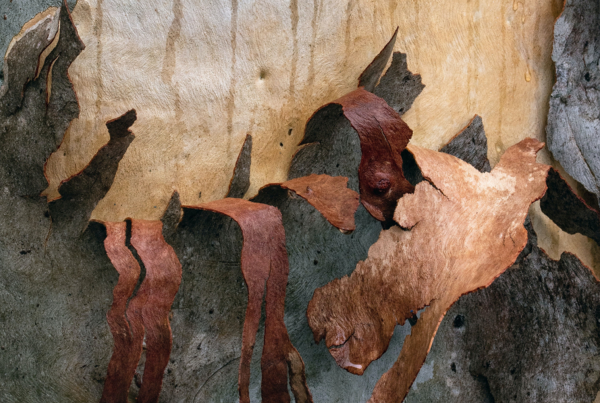Self-determination has been described by the Australian Human Rights Commission as an ‘ongoing process of choice’ to ensure that Indigenous communities are able to meet their social, cultural and economic needs.
Learning Creates commitment to First Nations self-determination is grounded in a sense of Place. We operate across the lands of Aboriginal and Torres Strait Islander People, and acknowledge that sovereignty has never been ceded.
We demonstrate our commitment to First Nations self-determination through the leadership of the organisation, our practices and creating space for First Nations representation and contribution during sector convenings.
We recognise that inequity within the current education system has especially disadvantaged First Nations young people. This extends beyond accessibility to education due to geography or physical space, but permeates social, economic and cultural determinants that contribute to culturally safe, available and appropriate learning environments.
Our strategic objectives
Vision for the work is for First Nations young people, families and communities are self-determined and a part of an equitable learning ecosystem that values, respects and trusts their unique learning aspirations and how to recognise them.
We will continue to work with First Nations people and communities to:
- Scale the First Nations Charter deeper in community and wider into new locations. This will include bespoke measurement and evaluation of its effectiveness.
- Build meaningful, reciprocal partnerships with First Nations that add value to their ambitions. This will include new and targeted research on the alignment between what we currently measure in learning and Indigenous Education Goals.
- Provide a culturally safe and responsive working environment for leadership, staff, volunteers and the communities we work with. This includes representation across all levels of the organisation, leadership and across partner organisations.
“We are not only accountable to ourselves, but to our families and to the communities where we work and live. It’s our responsibility to be uncompromising on designing and practising in ways that align with our values. It takes trust.”
– Hayley McQuire
Our Commitment to First Nations Self-Determination
Learning Creates Australia backs and supports Aboriginal and Torres Strait Islander Peoples collective right to self-determination, as outlined in the UN Declaration on the Rights of Indigenous People.
Aboriginal and Torres Strait Islander People have the right to self-determine their own systems of governance and learning that: protect, revive and maintain their languages, cultures, histories; that care for their lands, seas, skies and waterways and that supports their own economic, social and cultural needs. It means:
- Collaboration, ensuring that we work in ways that back the voice, agency and leadership of Aboriginal and Torres Strait Islander young people, families, communities and Nations.
- Listening deeply and patience. Ensuring that we listen and understand the contexts, perspectives and realities that Aboriginal and Torres Strait Islander partners are operating within.
- Love and the deep love and care Aboriginal and Torres Strait Islander families and communities have for their children and young people.
- Metrics of success that values the wellbeing of the Aboriginal and Torres Strait Islander child as a whole person connected to community, kinship, Country and Culture.
- Respect and data sovereignty where Aboriginal and Torres Strait Islander people are in control of their knowledge systems, and are able to share their knowledges, practices and stories in ways that respect their diverse cultures.
Asserting this right takes action and creating relationships built on trust, connection and accountability. The future of a transformative equitable education system includes the full realisation of Aboriginal and Torres Strait Islander people right to self-determination.
Our Principles
Aboriginal people are thriving when self-determination is at the core of healing and there is a connection to culture, Country and community. Self-determination supports the building of strong communities. It empowers everyone to influence and contribute to Aboriginal designed and led tailored solutions and successful outcomes.
Respecting Aboriginal and Torres Strait Islander Governance
Learning Creates Australia listens to and respects the leadership and governance of Aboriginal and Torres Strait Islander and to make decisions on the matters that affect them.
We demonstrate this by:
- Partnering with existing Aboriginal and Torres Strait Islander organisations that are values aligned.
- We understand the capacity / resourcing constraints faced by many Aboriginal and Torres Islander organisations, and therefore form partnerships where we can add value and contribute to enable sustainable collaboration.
- We embed Aboriginal and Torres Strait Islander leadership into our organisational structure.
Develop strong, trusting relationships
We are guided by the priorities of the Aboriginal and Torres Strait Islander organisations and critical friends in developing a partnership.
We demonstrate this by:
- Ensuring partnerships will be based on building and strengthening, rather than displacing, Aboriginal organisational capacity and control.
- We are aware of the contexts our partnerships operate in and are responsive to realities, capacities and time needed to effectively collaborate.
- We respect and acknowledge the many different, robust and effective ways of working by Aboriginal and Torres Strait Islander partners that are grounded in a cultural framework.
Informed Consent
We agree that Aboriginal and Torres Strait Islander partners take the lead on the development initiatives, services and programs delivered to their communities. This includes transparency about resourcing and staffing allocations, how information is being shared and collected.
We demonstrate this by:
- Going through appropriate ethics processes as needed.
- Clear and effective communication with partners and broader stakeholders.
- Entering into service agreements with Aboriginal and Torres Strait Islander organisations.
- Having a clear exit strategy and succession planning for the sustainability of shared projects.




